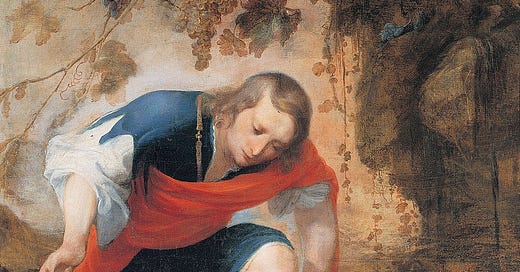Oscar Wilde offers us a clever retelling of the myth of Narcissus called “The Disciple”:
When Narcissus died the pool of his pleasure changed from a cup of sweet waters into a cup of salt tears, and the Oreads came weeping through the woodland that they might sing to the pool and give it comfort. And when they saw that the pool had changed from a cup of …
Keep reading with a 7-day free trial
Subscribe to What Is Called Thinking? to keep reading this post and get 7 days of free access to the full post archives.



